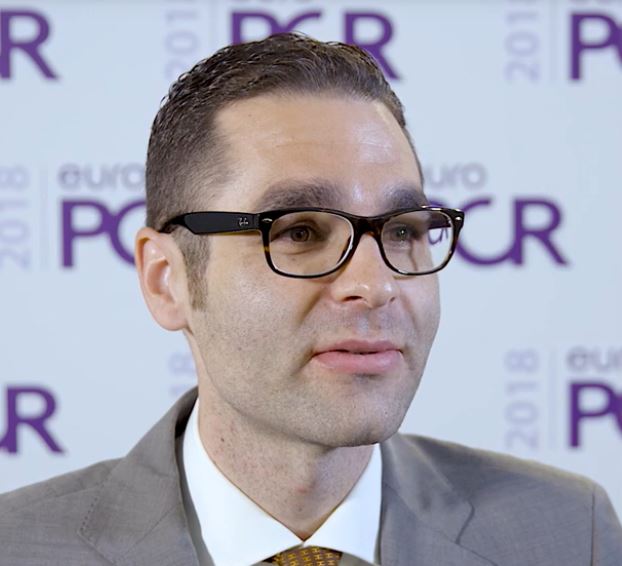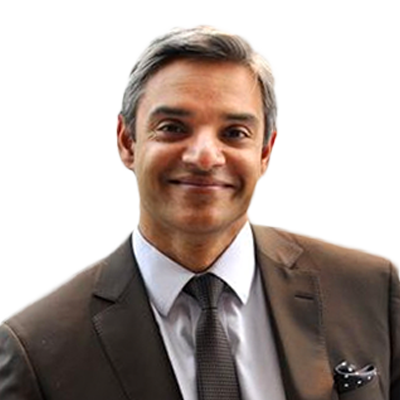07
Dec
2018
19:00
GMT
Webinar
Can Renal Denervation Benefit Patients with Hypertension?
-
Views:
 2056
2056
-
Likes:
 0
0
Overview
Hypertension remains a major burden and presents acute challenges in patient care. Sympathetic renal denervation (RDN) emerged as a therapeutic option for patients with resistant hypertension, until Symplicity HTN-3. However, more recently three sham-controlled trials have shed new light on RDN. In this Independent Medical Education webinar, four leading authorities discuss the scientific basis for RDN, the implications of data from SPYRAL OFF, RADIANCE SOLO and SPYRAL ON, its durability, safety and the considerations in patient selection, and look at what lies ahead.
Faculty:

Andrew SP Sharp

Indranil Dasgupta

Felix Mahfoud

Atul Pathak
This webinar is supported by

Key Learning Objectives
- Hypertension – the burden and current unsolved challenges in patient care
- Sympathetic modulation and the scientific basis for renal denervation
- Early data on the use of catheter-based renal denervation
- Symplicity HTN-3. Where and why did it all go wrong?
- The comeback! What do the three sham-controlled trials recently published tell us about the state of play in RDN?
- So RDN works. What do we need to know now?
- Outcomes and future need
Target Audience
- Cardiologists
- Interventional cardiologist
- Hypertension specialists
- Nephrologists
- Interventional Fellows
- Registrars with an interest in interventional cardiology
Faculty Biographies

Andrew SP Sharp
Prof Andrew Sharp qualified from Edinburgh Medical School in 1998. He conducted his senior clinical training at Imperial College Hospitals and San Raffaele Hospital, Milan, before being appointed in 2011 as a Consultant Cardiologist and Honorary Senior Lecturer at the Royal Devon and Exeter Hospital and University of Exeter. Professor Sharp was awarded an MD postgraduate research degree for his work on the hypertensive heart whilst at Imperial College and now leads a growing research programme at the Royal Devon and Exeter Hospital in the fields of hypertension, renal denervation, ischaemic heart disease, intra-coronary imaging, coronary physiology, pulmonary embolus and aortic valve disease.

Indranil Dasgupta

Felix Mahfoud
Professor Felix Mahfoud is an Associate Professor and senior physician of Internal Medicine and Cardiology at Saarland University Hospital, and Affiliate/Visiting Professor Harvard-MIT Biomedical Engineering, Institute of Medical Engineering and Science, Cambridge, US. Professor Mahfoud completed training in Cardiology and Interventional Cardiology at the Department for Internal Medicine III, Saarland University Hospital, Germany in 2014. Since 2017, he has served as Vice Chairman of the ‘Working Group on Interventional Hypertension Treatment’ for the European Society of Hypertension, and as a Committee Member of the 2018 Hypertension Guidelines.

Atul Pathak
Dr Atul Pathak is a Pharmacologist and Cardiologist. He is leading a clinical research team focusing on cardiovascular pathophysiology and clinical pharmacology and is affiliated to INSERM (National Institute of Medical Research).
Dr Pathak has been awarded by the ESC (Young Investigator Award), by the British Pharmacological Society and the French Society of Cardiology. He is also member of the French Association of Pharmacologists, the French Society of Hypertension and Cardiology, the American Society for Heart Failure. He is elected President of the Cardiovascular Pharmacology Working Group of the French Society of Cardiology. He has both academic and institutional commitments, among them participation at advisory board at AFSSAPS (French FDA) and HAS for the review of clinical trials protocol, assessment of benefit /risk ratio of drugs (marketed or under development) and medico-economic issues (regarding lipid or blood pressure lowering drugs).





